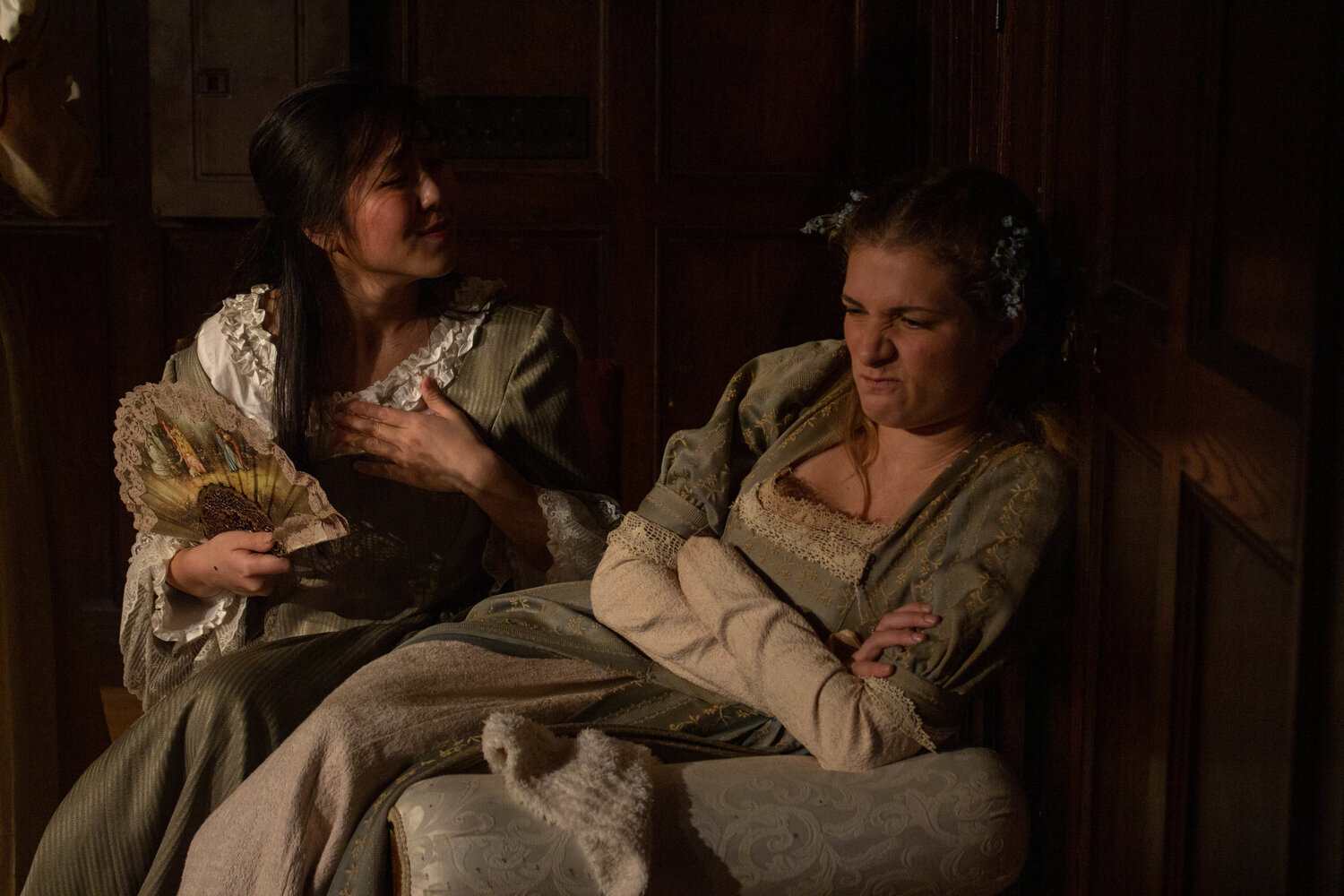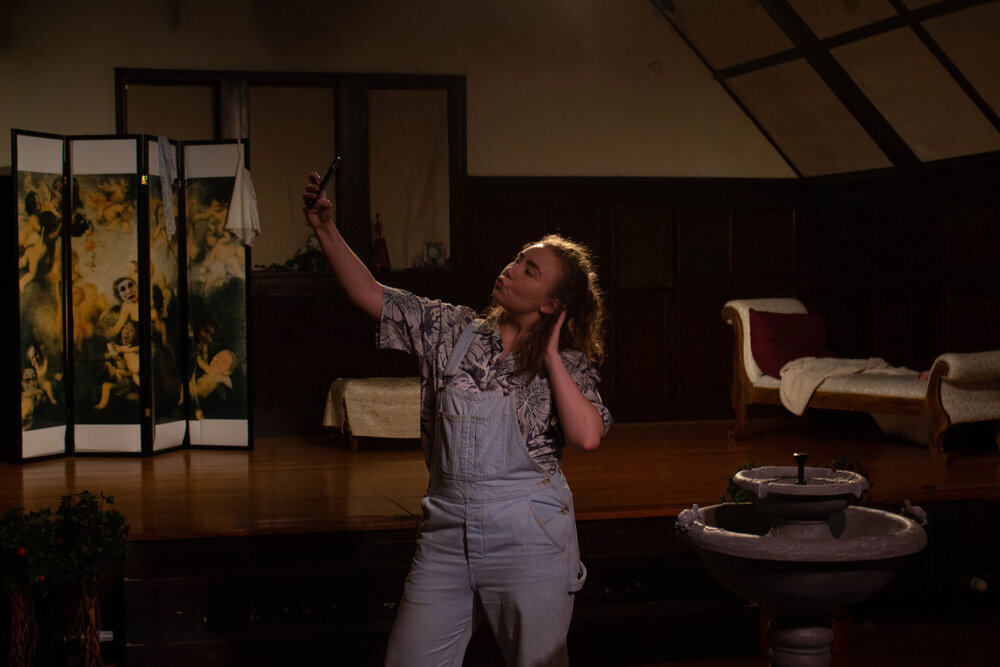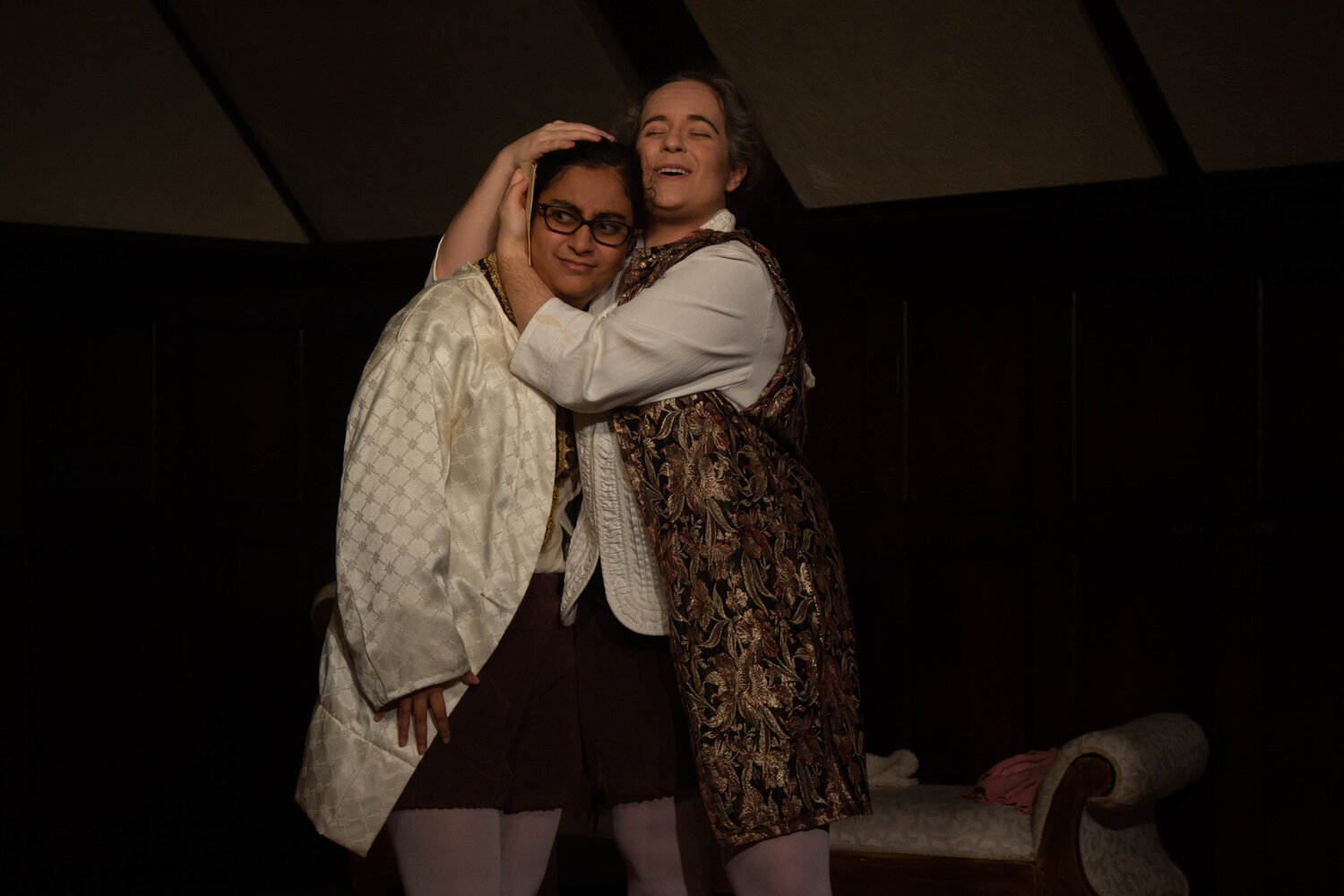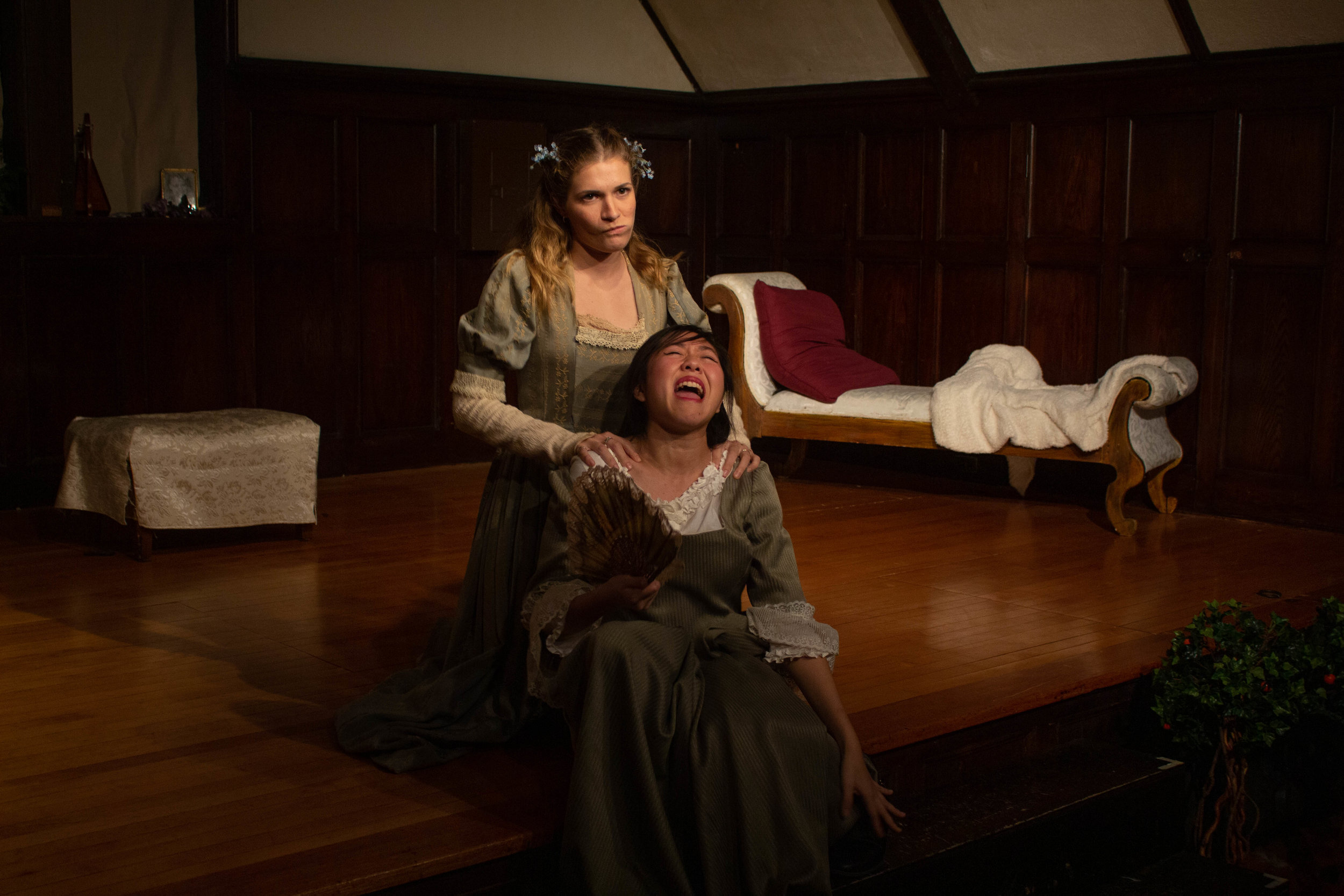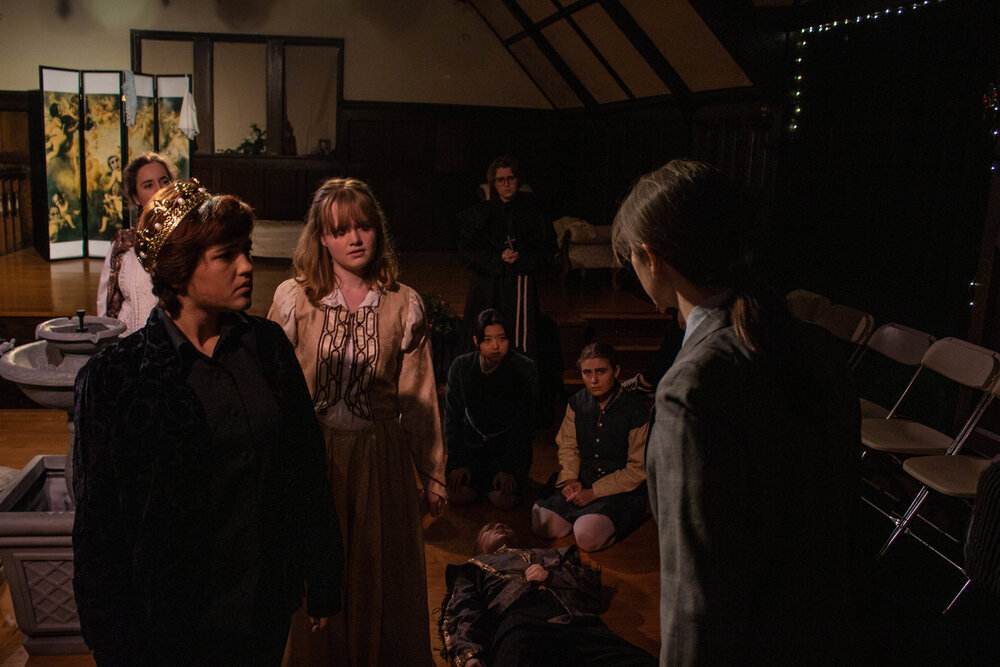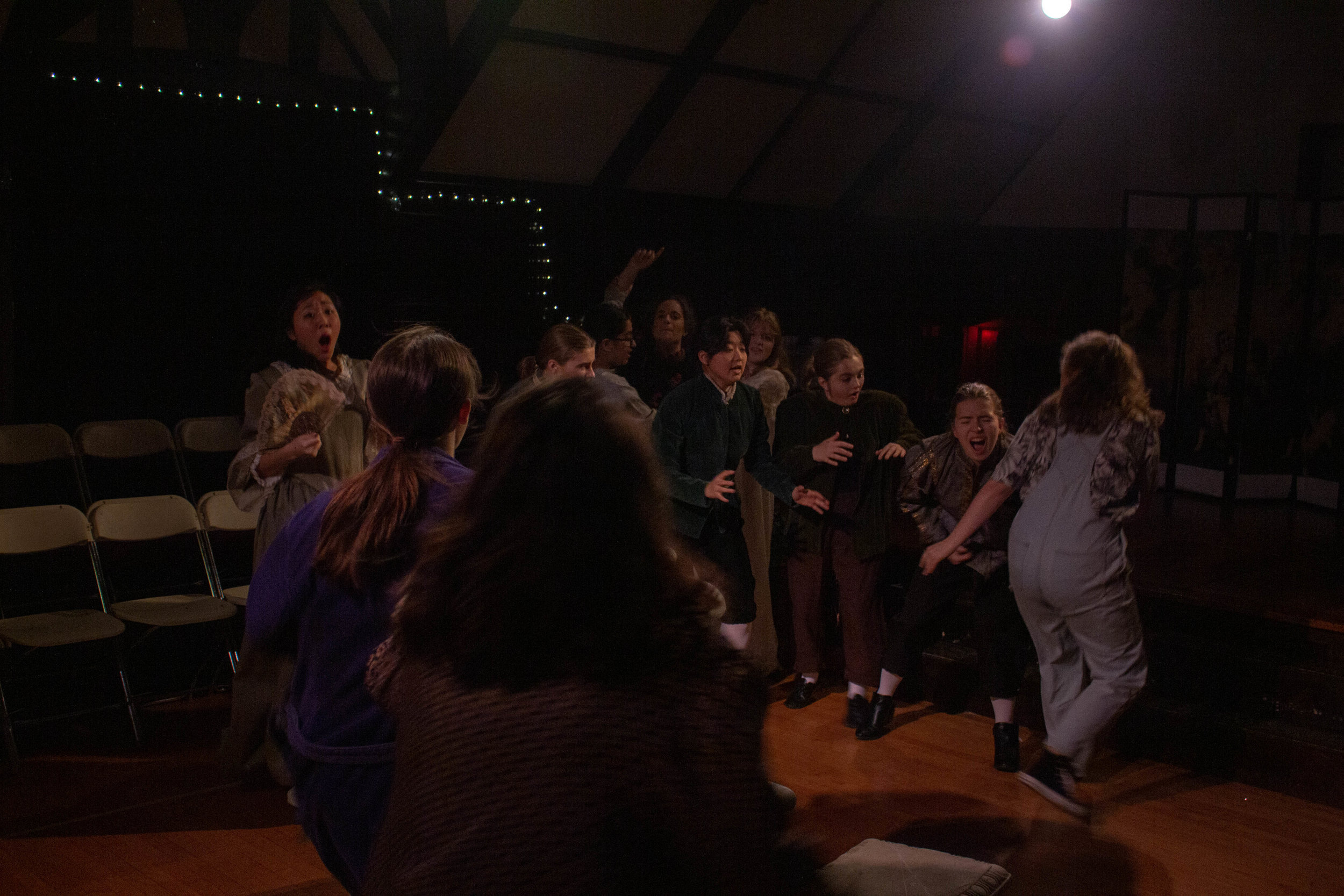Nurse and Juliet. Photo by Joy McWilliams.
For the Wellesley College Shakespeare Society, I directed a fully comedic production of Romeo and Juliet. Intentionally irreverent and often flippant towards material I was aiming to problematize, we straddled modern and period by refusing to choose between either: the Capulets are period and the Montagues are modern, and when they meet, it is explosive, laden with consequences, high stakes, and comedy. Directing Shakespeare is a dialectic between modern and period, interpretation and translation, comedy and tragedy, immediacy and history. This adaptation of Romeo and Juliet reveled in these (false) dichotomies. This play aimed to translate Romeo and Juliet from tragedy to comedy: we dwelled not in the consequences of romantic individualism, but in each characters’ absurd, disproportionate, and entertaining reactions to obstacles. This play isn’t really about Romeo and Juliet (surprise!), but about everything surrounding them. There are moments in the play that are painful, and we accept that too: our play is a delicate balance between the light and dark that is a part of the everyday.



